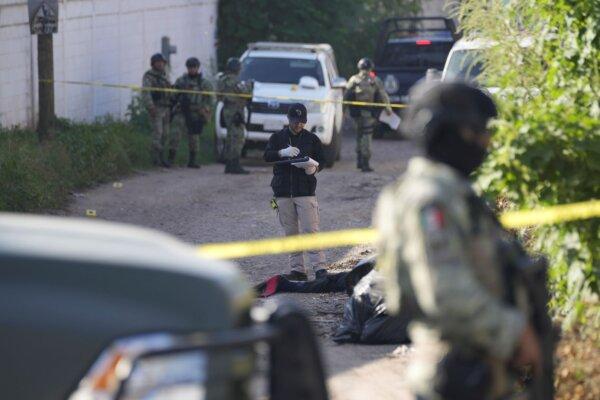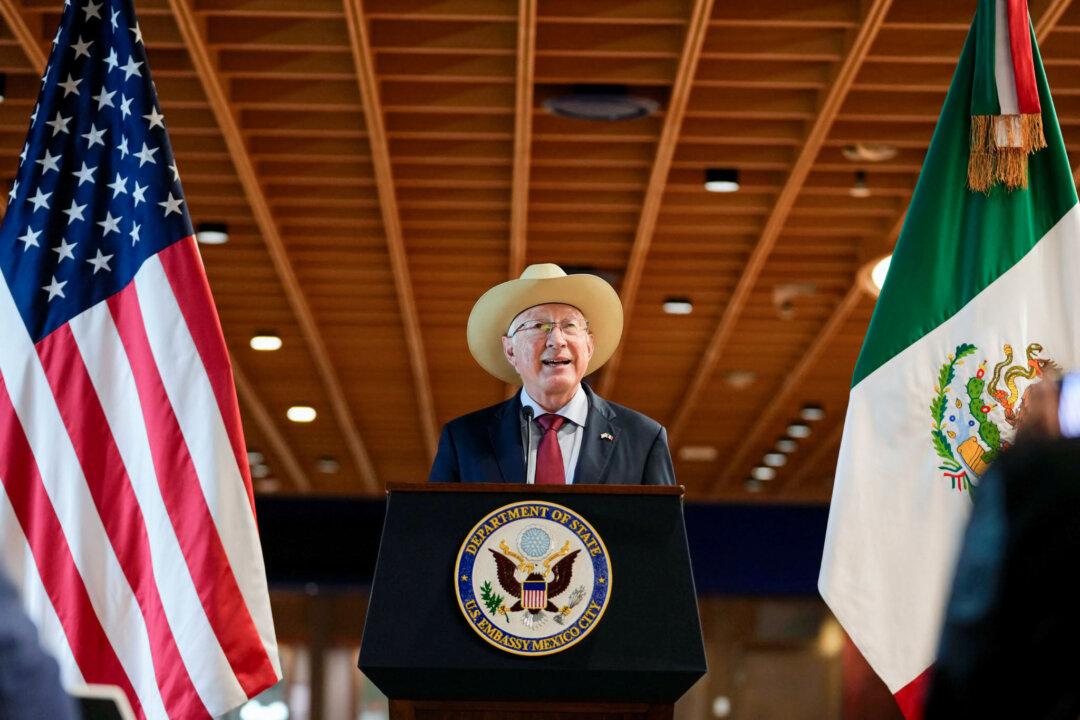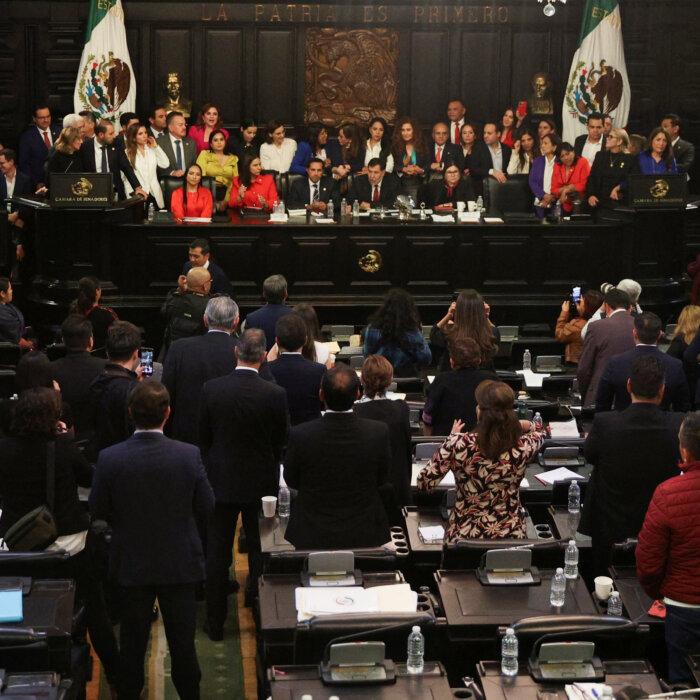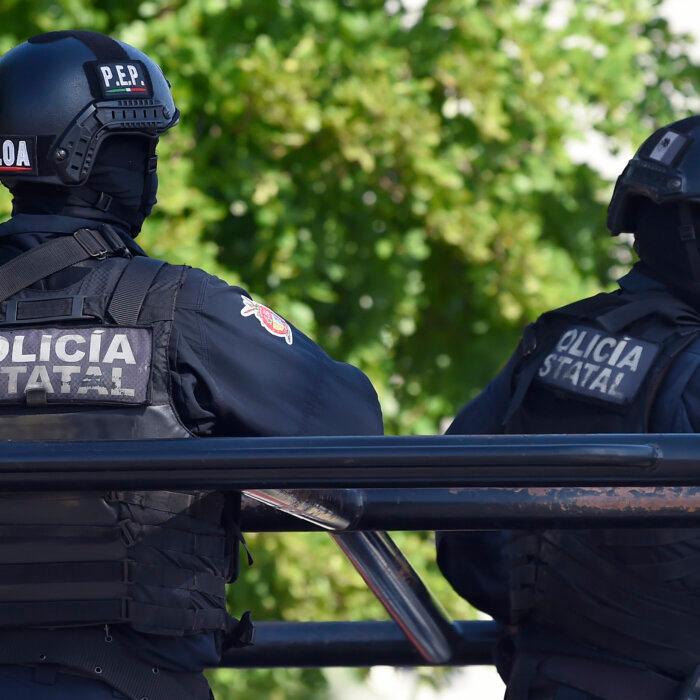The U.S. ambassador to Mexico, Ken Salazar, accused the Mexican government of being in denial over the country’s security problems and refusing to accept help from Washington in the fight against violent drug cartels.
“The reality is that at the moment Mexico is not safe,” Salazar said in a news conference in Mexico City on Nov. 13.
“The reality for the Mexican people, and that is for businesspeople, members of the press like you who work on the streets, those who have ranches, like the cattleman killed in Sinaloa over the weekend because he was a leader, they don’t live with security.”
Salazar, a former Democrat senator from Colorado and secretary of the interior under President Barack Obama, was appointed ambassador in September 2021 by President Joe Biden and could be expected to be replaced by President-elect Donald Trump.
‘There Is a Very Big Problem’
“When they just say ‘there is no problem, we have these statistics to show people there is no problem,’ that is not based on reality. There is a very big problem,” Salazar said.He said violent clashes between drug cartels was “a very serious problem in Mexico and saying there is no problem, blaming someone else, blaming the United States, obviously is not [the solution].”
Salazar criticized Morena for refusing “$32 million,” an apparent reference to López Obrador’s decision to snub a U.S.-funded program to train and equip Mexican police.
“It was rejected for ideological problems, and other explanations,” the ambassador said.
Salazar continued: “Police become corrupt because they don’t earn enough to live on. You cannot pay a police officer almost nothing and expect them to do their job.”
Fighting between two factions of the Sinaloa drug cartel broke out this summer after Ismael “El Mayo” Zambada was apparently tricked by Joaquín Guzmán López—son of Joaquín “El Chapo” Guzmán Loera—into flying to the United States, where he was arrested on July 25.
In September, during one of his daily briefings, López Obrador was asked if he thought the U.S. government was “jointly responsible” for the intra-cartel war in Sinaloa, and he replied, “Yes, of course. ... for having carried out this operation.”
On Nov. 13, Salazar spoke of cooperation deteriorating between the two countries over security. “It totally accelerated from there, the Mexican government closed its doors,” he said.
Gerardo Mérida, police chief of Sinaloa state, said on Nov. 13 that the body parts of at least five people had been found beside a road.
Dead ‘Everywhere’ In Sinaloa
Salazar said, “The dead can be seen everywhere [in Sinaloa].”The violence is not restricted to Sinaloa, however. Ten people were killed in a bar in Querétaro state in central Mexico over the weekend.

López Obrador, who became president in 2018, introduced a “hugs not bullets” strategy, which focused on tackling social issues and improving standards of living, rather than destroying the cartels.
But Salazar said the policy “did not work.”
Sheinbaum, a leftist like her predecessor, has pledged to continue the policy.
Salazar said of cross-border work to tackle the cartels, “Unfortunately this coordination has failed in the last year, in great part because the previous president did not want to receive help from the United States.”
He said he hoped that Sheinbaum would have greater success in fighting narcotics crime and violence and would invest more in security.
The Mexican government reacted to the speech by sending a diplomatic note to the U.S. embassy “expressing its surprise” at Salazar’s statements.







